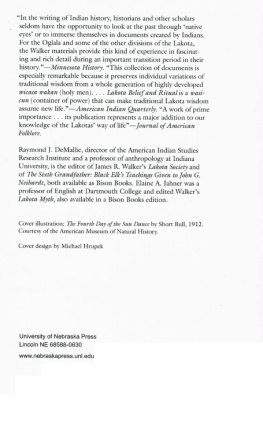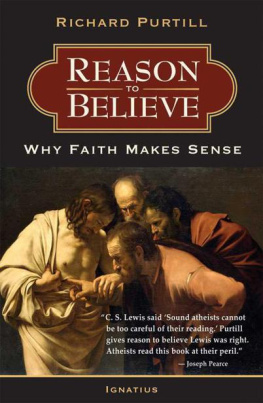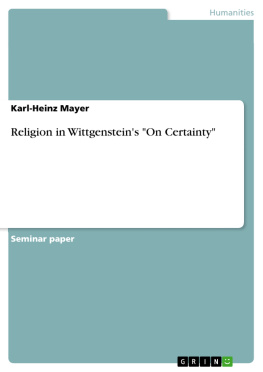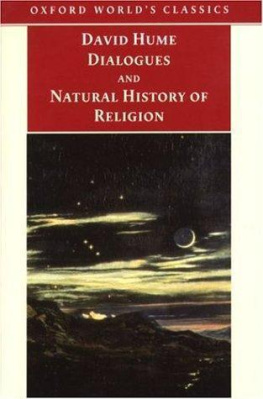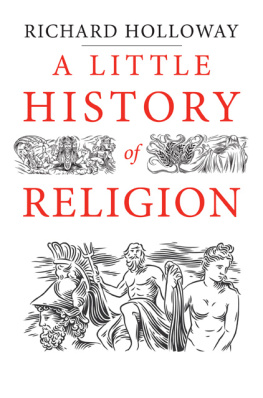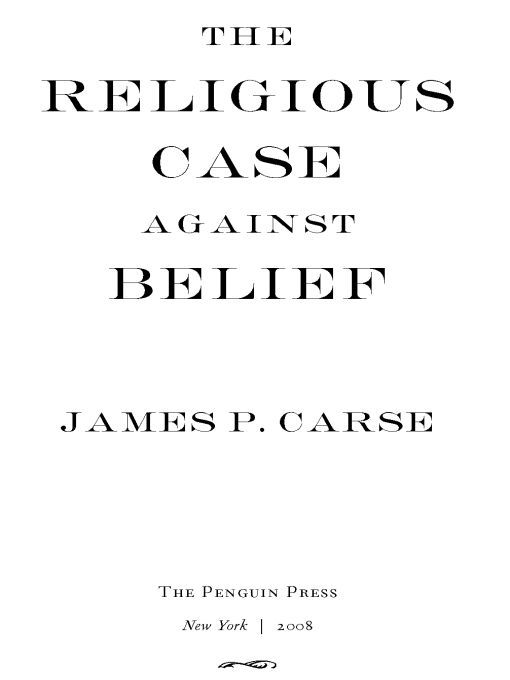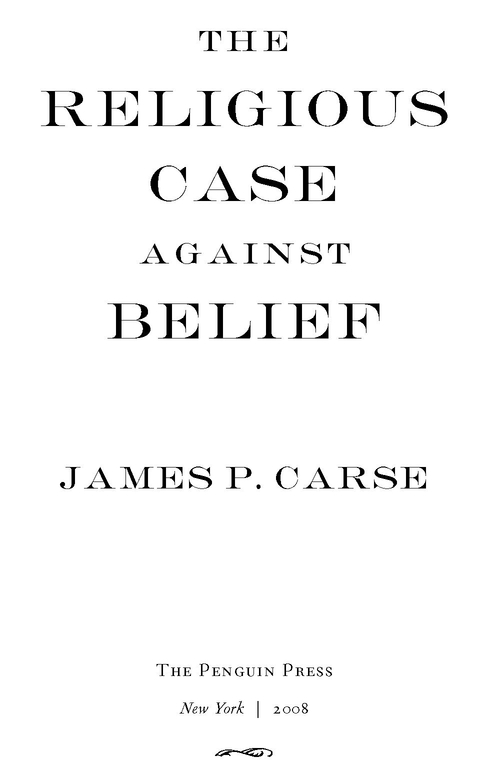Table of Contents
ALSO BY JAMES P. CARSE
The Silence of God: Meditations on Prayer
Death and Existence:
A Conceptual History of Human Mortality
Finite and Infinite Games
Breakfast at the Victory
The Gospel of the Beloved Disciple
For Tom F. Driver
If God held all truth in his right hand and in his left the everlasting striving after truth, so that I could always and everlastingly be mistaken, and said to me, Choose, with humility I would pick the left hand and say, Father, grant me that. Absolute truth is for thee alone.
GOTTHOLD EPHRAIM LESSING
To believe is to know that one believes, and to know that one believes is no longer to believe.
JEAN-PAUL SARTRE
God said it. I believe it. End of discussion.
BUMPER STICKER
INTRODUCTION
Why a religious case against belief?
In the current and quite popular assessment of religion, there is one thing conspicuously missing: religion itself. It has long been a fashion, and even more so now, to frame arguments against religion in largely scientific language. From that perspective critics are right to expose the inherent falsehood of much that believers claim to be true. The popular argument states that those who do believe in God, or Allah, have fallen under a spell worked on them by clever but fraudulent thinkers. Or that religious belief was once useful to the evolution of human culture but is now an impediment to mature societal advance. What is more, believers are not just wrong; they are also dangerous. Here, too, critics have abundant material to target. So-called true believersthose so convinced of the rectitude of their convictions they are eager to die, or to kill, for themhave brought once inconceivable havoc to the human community. Even a cursory glance at the present conflicts across the globe, executed in the name of religion, seems to justify a twist on the traditional Islamic exclamation, asserting that God is not good.
For all of their righteous passion, however, what these critics are attacking is not religion, but a hasty caricature of it. Religion has presented itself in so broad an array of disconnected and unique manifestations across the span of human history that no generalization can conceivably apply to the full variety of its expression. Although the critics in question are for the most part accomplished students of both science and modern society, their interest in the subject of religion seems to have been exhausted by a few initial glances at the actions of several selected groups of avid believers. This is a misfortune. Considering the extent of the chaos attributable to it, a reflective and religiously literate critique of belief is a necessity.
Offering a religious case against belief obviously implies that religion is not strictly a matter of belief. It may come as a surprise that a thoughtful survey of the history of religion provides scant evidence for an extended overlap of the two. Quite simply, being a believer does not in itself make one religious; being religious does not require that one be a believer. This improbable distinction has been hidden by the tenacious notion that religion is chiefly a collection of beliefs. By this account, Hindus have a certain catalogue of assertions to which one must assent in order to take the name for oneself, Jews another. This leads to the absurd perception that one could, for example, come to a full understanding of what it means to be a Jew by carefully listing everything Jews are thought to believe.
But if a religion is not strictly a matter of believing, what is it? Take note first of the irreconcilable differences between the historic religions. Although Islam and Christianity have been close neighbors for a full fourteen centuries, it is unthinkable that Muslims might occasionally mistake themselves for Christians. There is something in each tradition that definitively sets it off from the other. But what? It might seem reasonable at this point to consult Christians to learn what their religion is at its core, then turn to Muslims with the same request. After the first few inquiries, we would discover that there is little agreement within Christianity and within Islam as to how the core of each faith is to be articulated. Indeed, this is such an open question that both traditions largely consist in the struggle over what it means to be a Muslim or a Christian. At the center of each, in other words, is a mystery they cannot fully comprehend; neither can they cease attempting to comprehend it. They may give this mystery the name God or Brahman or Tao, but when we ask for more complete clarification, agreement among them scatters. How then can we say what the Christian religion is when Christians themselves have never been able to do so?
Yes, an inclusive definition of religion is out of reach, but to acknowledge that is not to terminate meaningful discussion of the issue. Instead, we must integrate the factor of unknowability into each of our conceptions of religion. This can have a strong effect on our thinking in general: reflecting on the remarkable way the great religions seem to develop an awareness of the unknown keen enough to hold its most ardent followers in a state of wonder, we may begin to acquire the art of seeing the unknown everywhere, especially at the heart of our most emphatic certainties. This is not just to develop a new intellectual talent, but to enter into a new mode of being, a higher ignorance. Through higher ignorance, an open-ended dialogue becomes possible. It is the goal of this book to reach beyond the phenomenon of belief not merely to defend the religions but to discover how higher ignorance can inform our most ordinary experience. Far from being a critical failure of religion, valued in this way higher ignorance is the beginning of wisdom.
Why a religious case against belief?
In one respect, it is not a mistake to associate religion with belief. Mystery is difficult to live with, and for some even terrifying. It can often be of great comfort to hide our unknowing behind the veil of a well-articulated belief system. For this reason, the historic religions seem to be a particularly fertile source for absolutisms. But when true believers claim that their convictions have been validated by a given religion, they are patently unaware that in doing so they have just rejected it. The certainties that led Christians to the Crusades, or Hindus to the universal imposition of a caste system, or Muslims to truck bombs all constitute a repression of the tradition they claim as their own. What is more, belief systems or ideologies that originate elsewhereNazism, Maoism, Serbian nationalism, American triumphalismpresent themselves as the equivalent of religion, often taking on its presumed trappings: Nazi ritual, Maos Little Red Book, the demarcation of sacred soil, the mission of democracy to enlighten a corrupted world.
This should be enough to indicate that the act of belief is highly complicated and richly nuanced behavior. That it consists of an avowed commitment to a set of truth-claims is the least part of it. On closer analysis in the following chapters, we will find that, among other features, belief thrives on conflict, depends on the clarity and restricting power of its surrounding boundaries, has a one-dimensional understanding of authority, possesses a kind of atemporality that denies any possibility of an open history, and builds on a severe form of self-rejection. These are characteristics of belief rarely cited in the general discussion. They appear in sharp profile only when we consider their inherent hostility to religion.


